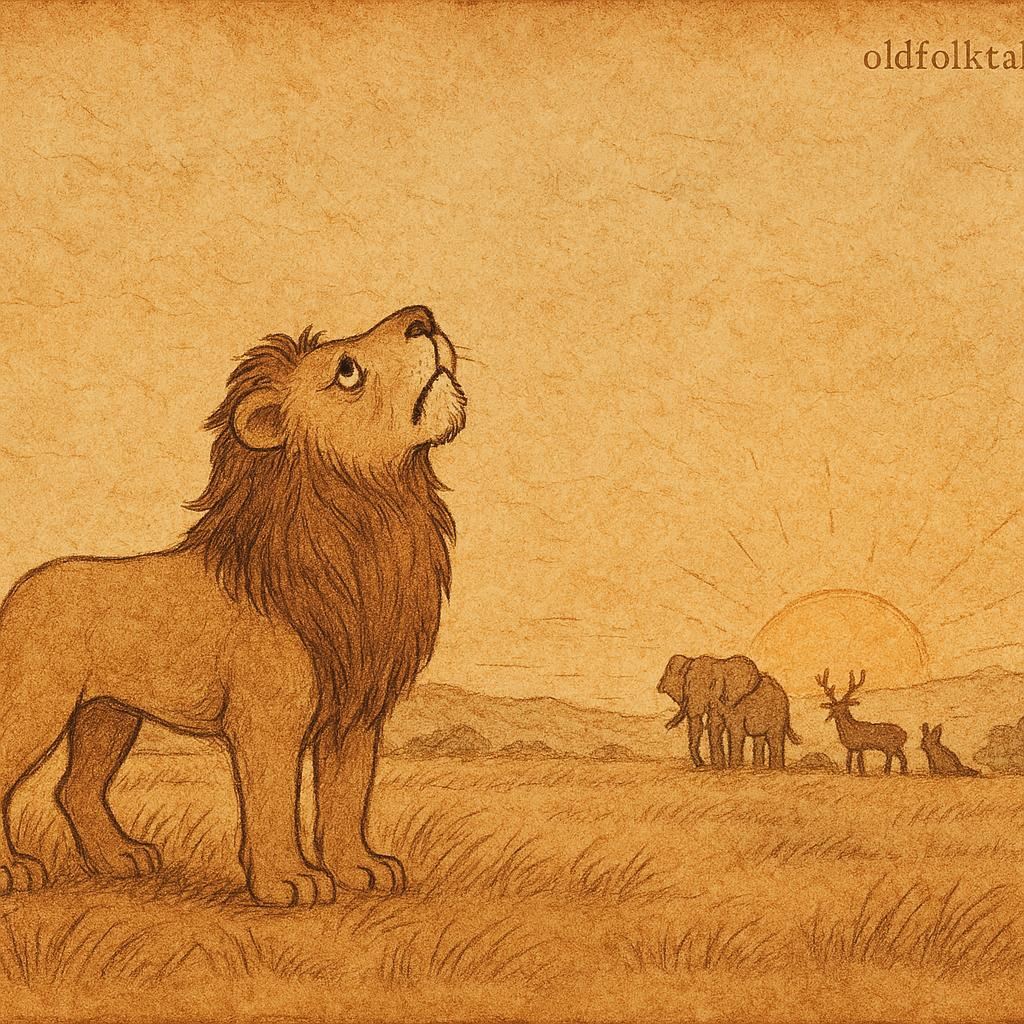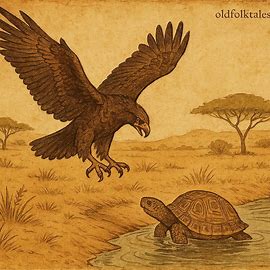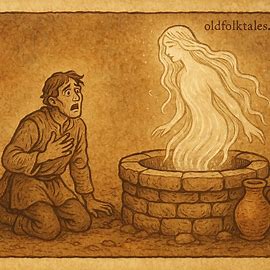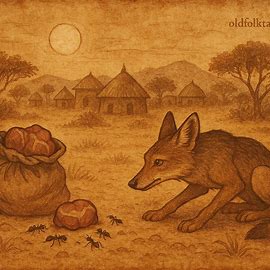Long ago, in the days when the world was still young and full of wonders, the animals lived in great fear of one among them: Lion. But this was not the Lion we know today. This Lion was unlike any other creature, for he possessed wings. Strong and vast, his wings stretched wide across the heavens, and when he beat them, the winds rushed like a storm.
With those mighty wings, Lion could soar high above the forests, rivers, and plains. From the sky he watched the herds of antelope grazing peacefully, the zebras drinking by the water, and the warthogs rooting about in the earth. None of them were safe. For when Lion’s golden eyes fixed upon his prey, he needed only to fold back his wings, swoop down like a thunderbolt, and seize his victim.
Life was easy for him. He did not need to stalk carefully through the grass or chase his prey with pounding feet. No, Lion simply ruled from the air, hunting with ease, and always feasting. His roar rolled through the clouds, striking terror in the hearts of all who heard it.
But for the other animals, this life was unbearable. They lived in constant dread. No matter how watchful they were on the ground, Lion’s shadow from above betrayed their doom. If they hid under trees, he could still swoop between the branches. If they ran, he would overtake them from the skies. Each sunrise brought fear, for they never knew who would be taken that day.
At last, the animals could bear it no longer. They gathered in secret meetings, whispering among themselves in the quiet of night. Elephant shook his great head sorrowfully. Antelope trembled, unable to sleep. Tortoise, slow and wise, spoke softly, “If this continues, Lion will devour us all, one by one, until none of us are left.”
The animals agreed. Something had to be done. But what power could stand against Lion? His wings gave him strength greater than all of them combined. They thought long and hard until finally one among them said, “We must go to the Great One above. Only the Creator, who made all things, can help us.”
So it was decided. The animals sent a delegation to the heavens. They lifted their prayers with one voice, crying out in desperation:
“Great One, hear us! Lion soars above us all, and none can escape his wings. If he continues, every creature will perish. We beg you, take from him this power. Let him walk as we walk, and hunt as we hunt, so that balance may return to the earth.”
The Great One above listened. For though Lion was mighty, he had upset the harmony of the world. No animal was meant to rule so completely over the others. Strength was to be balanced with struggle, and every creature with breath was to know both hunger and effort.
Thus, the prayer was granted.
One morning, as the sun rose over the horizon and painted the sky with gold, Lion awoke from his sleep. He stretched his body, yawned deeply, and shook his mane. But when he rose to spread his wings and feel the morning air, he found, nothing. His wings were gone.
Startled, Lion leapt to his feet. He twisted and turned, searching, beating the air with his shoulders where once the great feathers had grown. But no matter how he strained, he could not rise. His wings had vanished like mist at dawn.
For the first time, Lion was trapped upon the earth. His roar shook the land with fury. Birds scattered from the trees. The animals hid, watching from afar. They saw him leap and run, but never lift. His days of flying power were over.
From that time onward, Lion had to hunt as the others hunted. No longer could he swoop from above; he now had to creep through the tall grass, silent and watchful. He had to learn the ways of patience, stealth, and endurance.
And so it remains to this day: the Lion, once master of the skies, now prowls upon the ground like any other beast. Yet even without wings, he is still feared, for his strength and cunning make him king of the land. But the memory of his lost wings lingers in the old stories, reminding us of the days when Lion could fly.
Moral of the Story
The folktale teaches that unchecked power disturbs the balance of life. No creature, however strong, should hold dominion over all. True harmony comes when strength is tempered by limits, ensuring that every being has a place in the world.
Knowledge Check
Q1: What special ability did Lion originally have in this folktale?
A1: Lion had wings, allowing him to fly and easily catch prey from the sky.
Q2: Why did the other animals fear Lion so greatly?
A2: Because he could swoop down from the air at any time, leaving them no chance to escape.
Q3: To whom did the animals pray for help against Lion?
A3: They prayed to the Great One above, the Creator, to restore balance.
Q4: What happened when the Great One answered the animals’ prayer?
A4: Lion’s wings were taken away, and he was left to hunt on the ground like other animals.
Q5: What lesson does this story teach about power and balance?
A5: That excessive power leads to imbalance, and limits are necessary for harmony and survival.
Q6: From which cultural tradition does this folktale come?
A6: This story is from African oral tradition.
Source: South African Folktale






